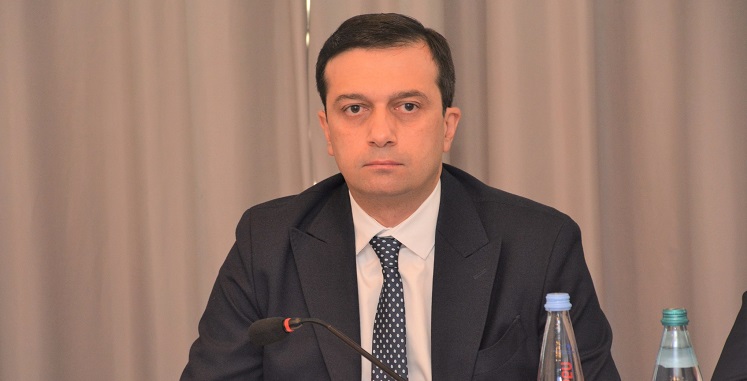Public Defender urges Gov’t “use all levers” to protect rights of conflict-affected communities in 2008 war anniversary message

Levan Ioseliani, the Public Defender of Georgia, has responded to the 15th anniversary of the Russia-Georgia war. Photo: Public Defender’s Office
Levan Ioseliani, the Public Defender of Georgia, on Monday urged the country’s authorities to “use all international mechanisms” and ensure further engagement of the international community to “intensify” pressure on Russia to protect the rights of the people living in Georgia’s occupied Abkhazia and Tskhinvali (South Ossetia) regions, in his message on the 15th anniversary of the 2008 war between Russia and Georgia.
In his remarks, Ioseliani said communities in the regions or near the Administrative Boundary Lines separating them from the rest of the country were “still suffering” from the consequences of the armed conflict, which he said had left 27,582 internally displaced.
Providing additional figures, Ioseliani said the war had claimed the lives of 14 police officers, 170 servicemembers, 224 civilians and left 2,232 injured, while the offenders in murders of four Georgian citizens - Davit Basharuli, Giga Ochtozoria, Archil Tatunashvili and Irakli Kvaratskhelia - over the years since the war remained “unpunished” by de facto authorities.
The Public Defender added the Russian-controlled occupation forces had illegally detained 3,439 Georgian citizens for “crossing the border” since 2008, of which 1,935 had been arrested by de facto authorities in Abkhazia and 1,504 by de facto authorities in Tskhinvali.
It is particularly noteworthy that the Illegal detentions have increased in recent years. As of today, nine Georgian citizens remain in illegal detention in the occupied territories of Georgia”, Ioseliani said.
He also said violations of property rights caused by the installation of illegal barriers by the occupation forces remained a “daily challenge” for the communities living near the regions.
Ioseliani noted more than 56 km of barbed wire fences and “various artificial barriers” had been installed by the Russian-controlled occupation forces along the ABL for the occupied Tskhinvali region and over 49 km of the obstacles erected in the vicinity of the Line for Abkhazia since 2008.
He said the de facto authorities continued discrimination of ethnic Georgians and banned their access to education in their mother tongue, in addition to restrictions of free movement and other fundamental rights of local communities.
 Tweet
Tweet  Share
Share